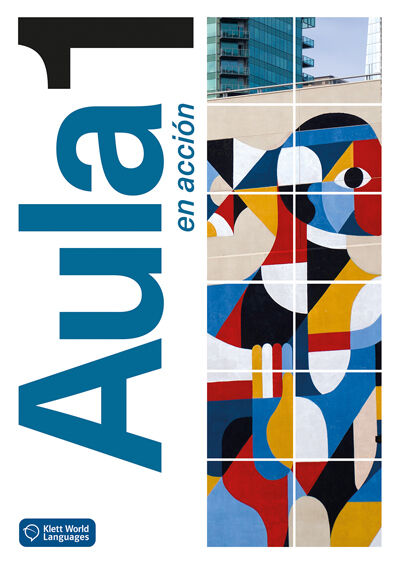Introduction
In this case study, we delve into the impactful teaching methods of Claudia Fernández, who utilizes the innovative Spanish program AULA EN ACCIÓN. This study explores how AULA EN ACCIÓN, with its easy-to-follow and highly effective approach, empowers students to communicate confidently in Spanish.

Claudia Fernández is a Clinical Associate Professor of Spanish & Linguistics at University of Chicago Illinois. A contributor to AULA EN ACCIÓN and a current user, Claudia is well known in the higher ed Spanish community. She regularly trains and mentors current and future language teaching professionals, and regularly participates in conferences and other professional development events both nationally and internationally.
Claudia has been using AULA EN ACCIÓN 1 and 2 for a year and a half now.

The University of Illinois-Chicago (UIC) is a leading public research university located in Chicago, Illinois, with a total enrollment of 34,199 students. UIC offers a wide range of undergraduate and graduate programs across various fields of study. The university’s strong emphasis on research, community engagement, and innovation fosters a dynamic learning environment, preparing students for successful careers and impactful contributions to society.
The Challenge
UIC’s Spanish Basic Language Program is a four semester program with classes from novice-low to intermediate-low. One of Claudia’s overarching goals within an introductory program is to have these students complete authentic, real-world tasks in the classroom in Spanish.
Claudia’s experience had shown her that the majority of Spanish textbooks in the United States follow outdated teaching methods when it comes to language acquisition and communicative ability development; most follow a grammar-based curriculum with the intention to have students learn one grammatical point at a time in a linear sequence, mostly with an emphasis on production.
Educators like Claudia that want to offer opportunities for language use often look for other materials to supplement their textbooks or greatly modify the activities that the textbook offers. Instead of the text being a tool that helps, as it should be, it ends up being a hindrance.

“Finding a truly communicative-based, proficiency-based curriculum in a textbook is a challenge. 98% of textbooks in the United States do not meet these needs.“
CLAUDIA fernández
The Solution
Since Claudia’s curriculum is based on tasks and reaching communicative goals, she wanted a textbook that could help teach within this framework whilst simultaneously facilitating language acquisition and communicative development. AULA EN ACCIÓN lends itself very well to these endeavors.
Through a backwards design, AULA EN ACCIÓN offers purposeful and meaningful activities around the final task, with each chapter including learning opportunities to foster both language and content learning so that students feel confident to do the unit´s task.
“[AULA EN ACCIÓN] has an explicit intent by the writers to really help students to communicate. The program really focuses on true, genuine, authentic communication and it gives the students the confidence to do so,” Fernández says.
After using AULA EN ACCIÓN, Fernández and her colleagues noticed how much students are able to use Spanish to do real-world tasks. Students apply both linguistic and non-linguistic resources to interpret, interact, and express themselves more effectively. Fernández noticed an increase in students’ engagement and confidence, specifically in speaking, because this program focuses on true communication, not grammar accuracy.

“I was lucky to have this textbook that helped me to achieve my proficiency goals [for my students]. AULA EN ACCIÓN does not follow the old model. It has an explicit intent by the writers to really help students to communicate.”
CLAUDIA fernández

